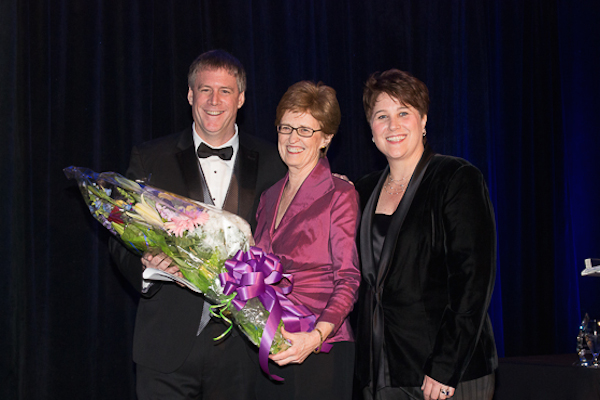In July of 1989, Mary-Helen Mautner had a promising idea. She reflected on the tremendous assistance she had received from her partner, family, and friends as she fought her long battle with breast cancer. She envisioned an organization that would provide the same kind of support to all lesbians with cancer.
Three weeks later, at the age of 44, Mary-Helen passed away. Soon after, her partner, Susan Hester, along with other friends and supporters began to discuss how to bring Mary-Helen’s vision into fruition. In April 1990, a public meeting was held and the Mary-Helen Mautner Project for Lesbians with Cancer was born.
The Mautner Project grew swiftly. During the first two years, the group recruited more than 200 volunteers, assembled a Board of Directors, and opened a resource center in Washington, D.C. A support group was formed to give lesbians with cancer, their partners, and primary caregivers a safe and structured environment. Scores of volunteers were organized to provide a range of services: driving women to medical appointments, buying groceries, visiting the hospital, helping to untangle insurance problems and caring for pets.
Although a local effort, the Mautner Project soon achieved national impact. In 1993, they added advocacy for lesbians on health issues to their official mission statement. Mautner Project volunteers were among women nationwide who met with President Clinton and Hillary Clinton, as well as former Secretary of Health and Human Services Donna Shalala to discuss not only the breast cancer epidemic, but also the need for a lesbian health agenda. Women from across the country turned to Mautner for help in establishing similar lesbian health projects in their own communities.
By 2013, the local non-profit had grown into an organization with expertise in the unique health care needs of lesbians and bisexual women. Known as Mautner Project, the National Lesbian Health Organization, the organization joined Whitman-Walker Health in a historic collaboration in June of the same year. All of Mautner Project’s programs and employees became a part of Whitman-Walker Health, allowing Mautner’s existing clients greater access to more health care services.
Today, Mautner Project is a flourishing, multi-faceted program under the Whitman-Walker Health umbrella that provides Washington’s LGBTQ community with vital services and information. The organization has worked with the Centers for Disease Control and Prevention to develop tools and curricula for medical providers and women seeking care; contributed to national research to help advance the body of knowledge around what health and health care looks like for LGBTQ women; and have provided thousands of women and their families with the support they needed to face life threatening illness.
Of the volunteers and contributors who support Mautner Project of Whitman-Walker today, only a handful knew Mary-Helen. The rest were drawn by the promise of her idea. While they continue to grow, Mautner Project’s primary commitment remains – to provide the highest quality, culturally competent care and support to our diverse community, their families and caregivers. As the landscape of health care changes, Mautner Project looks forward to the future and serving the community.
The Mautner Project 25th anniversary celebration will take place on Friday, September 25 at 8 p.m. at Dock 5 at Union Market in Washington, D.C.


